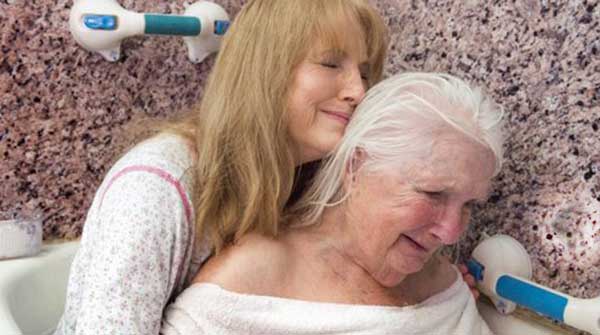An aging Canadian population and smaller families, combined with reduced health and social care budgets, mean the challenges of providing care to seniors will only worsen.
Legions of families are buckling under the emotional, physical and fiscal burdens of caregiving. These pressures will be exacerbated by growing numbers of people living with demanding health challenges such as dementia, with fewer and fewer people to take care of them. The natural web of caring that so many of us take for granted is at risk of unravelling.
Troy Media’s Family Ties examines the issues facing caregivers and the healthcare system in general and seeks solutions.
If you have a story to tell, contact us at [email protected]. We would love to hear from you.
Caring for each other happens every day, everywhere, by just about everyone. It’s as ordinary and necessary as breathing. Over our lifetime, 80 percent of the care we need is freely given, by families, friends and neighbours. Yet its central role in shaping our lives is absent from our day-to-day conversation.
 We don’t have words to describe care because, often, we don’t notice it. We perform daily acts of care, love, obligation and solidarity naturally and without conscious thought.
We don’t have words to describe care because, often, we don’t notice it. We perform daily acts of care, love, obligation and solidarity naturally and without conscious thought.
Everyday caring is difficult to talk about. We have to pick our way though limited vocabulary to reflect the value, meaning and struggle of our caring, without inadvertently casting ourselves as heroes or martyrs.
Each of us is completely dependent on others at various points in our lives. At odds with that practical reality is our society’s reverence for the ethic of personal independence.
Our inevitable frailty reveals that there’s no independence without interdependence. Even so, vulnerability, dependence and physical decline are uncomfortable subjects outside of home and family. That’s a lesson that caregivers and their loved ones learn the hard way and one of the reasons isolation is so often a part of the caring experience.
In a world of overexposure, caregiving is still a taboo subject.
The public experiences of care in our society have been professionalized and reduced to service interactions. Consider the impersonal customer care specialists at the end of a protracted telephone tree or the large corporation that declares “caring: it’s in our nature.”
In our healthcare systems, blockbuster drugs and technologies have taken centre stage and care is provided in tightly-controlled units. Caseloads and service plans dominate our social-care systems.
Family and friends labelled as caregivers are often noted as a detail of the patient history, rather than as integral members of the care team. It should come as no surprise then, that natural care with its engine of love has little value in these systems powered by money.
The irony is that the financial sustainability of our formal care systems is completely dependent on the freely-given care of family, friends and neighbours. The role of medical professionals is to provide treatment and information aimed at curing what ails patients.
But after leaving the doctor’s office or hospital, it’s the practical and emotional support of family and friends that enables healing.
Family caregivers are firmly embedded with professionals in the circle of care. But often the only people who recognize that reality are caregivers themselves.
As caregivers, it’s imperative we speak up and take our pride of place beyond the intimate caring circle. Our stories, knowledge and earned wisdom are priceless resources for care providers, policy-makers and change-makers. Making them visible is one of most caring acts we can perform.
We welcome your comments and invite you to share your stories with us.


